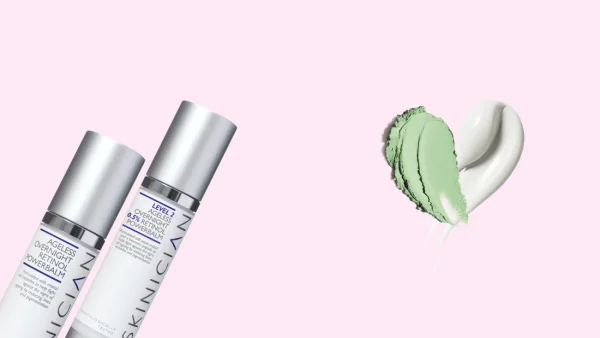
Retinol Sunscreen
Sunscreen is a crucial part of any skincare routine, protecting our skin from harmful UV rays. But have you heard about the powerful combination of Retinol Sunscreen? Let’s delve into this dynamic duo and uncover its benefits for your beautiful skin.
The Power of Retinol
Retinol, a derivative of vitamin A, is renowned for its anti-aging properties. It aids in cell turnover, reducing the appearance of fine lines and wrinkles, and promoting smoother, younger-looking skin. Additionally, retinol helps to even out skin tone and texture, making it a favorite among skincare enthusiasts.
The Importance of Sunscreen
We all know the importance of sunscreen in shielding our skin from the sun’s harmful rays. It prevents sunburn, premature aging, and reduces the risk of skin cancer. Incorporating sunscreen into your daily routine is essential for maintaining healthy, youthful-looking skin.
The Benefits of Retinol Sunscreen
Combining retinol with sunscreen offers a myriad of benefits. Firstly, it provides double the protection against UV damage and photoaging. While sunscreen safeguards the skin from sunburn and skin cancer, retinol works to combat the signs of aging caused by sun exposure.
Moreover, it helps to enhance collagen production, improving skin elasticity and firmness. This results in plumper, more resilient skin that is better equipped to withstand environmental stressors.
Choosing the Right Retinol Sunscreen
When selecting a one, it’s essential to opt for a product that offers broad-spectrum protection with a high SPF (Sun Protection Factor). Look for formulas that contain stabilized retinol to ensure maximum efficacy without compromising stability.
Our Top Retinol Sunscreens
1. La Roche-Posay Anthelios Age Delay SPF 50 Sunscreen: This lightweight formula combines broad-spectrum protection with the anti-aging benefits of retinol, making it perfect for daily use.
2. Neutrogena Rapid Wrinkle Repair Moisturizer SPF 30: Infused with retinol SA, this moisturizer sunscreen visibly reduces the appearance of fine lines and wrinkles while providing sun protection.
3. SkinCeuticals Retinol 0.5 Refining Night Cream: While not a sunscreen per se, this potent retinol treatment can be used in conjunction with a sunscreen during the day for comprehensive UV protection and anti-aging benefits.
Frequently Asked Questions On Retinol Sunscreen
1. What is retinol sunscreen, and how does it work?
It combines the benefits of retinol, known for its anti-aging properties, with the protective qualities of sunscreen. Retinol promotes skin renewal, reducing wrinkles and fine lines, while sunscreen shields the skin from harmful UV rays, preventing sun damage and premature aging.
2. Is it safe for all skin types?
It can be suitable for most skin types, but individuals with sensitive or reactive skin may experience irritation. It’s essential to patch test new products and consult with a dermatologist before incorporating retinol sunscreen into your routine, especially if you have sensitive skin.
3. How should I incorporate it into my skincare routine?
Begin by using every other day to allow your skin to adjust gradually. Apply a pea-sized amount to clean, dry skin in the morning, followed by a moisturizer if needed. Remember to reapply sunscreen throughout the day, especially if you’re spending time outdoors.
4. Can I use it with other skincare products?
Yes, you can incorporate it into your existing skincare routine. However, avoid using it with other products containing retinoids or exfoliating ingredients, as this may increase the risk of irritation. Instead, alternate when using other active ingredients to prevent overloading your skin.
5. What are the potential side effects of using?
Common side effects include dryness, redness, and peeling, especially during the initial adjustment period. To minimize irritation, start with a lower concentration of retinol and gradually increase frequency as tolerated. Always follow up with a moisturizer to hydrate and soothe the skin.
6. Can retinol sunscreen be used during pregnancy or while breastfeeding?
It’s best to avoid retinol-containing products, includuring pregnancy and breastfeeding, as retinoids may pose a risk to the developing fetus or infant. Consult with your healthcare provider for personalized skincare recommendations during this time.
7. How do I choose the right one for my skin?
When selecting m, look for a broad-spectrum formula with a minimum SPF of 30. Consider your skin type and preferences, opting for lightweight textures or additional skincare benefits like hydration or antioxidant protection. Patch test new products and read reviews to find the perfect fit for your skincare needs.
Conclusion
By incorporating Retinol Sunscreen into your daily regimen, you can effectively combat signs of aging while safeguarding your skin against the sun’s harmful rays. Explore the recommended options to discover the perfect one for your skincare arsenal and embark on a journey towards a more luminous complexion.

Leave a Reply